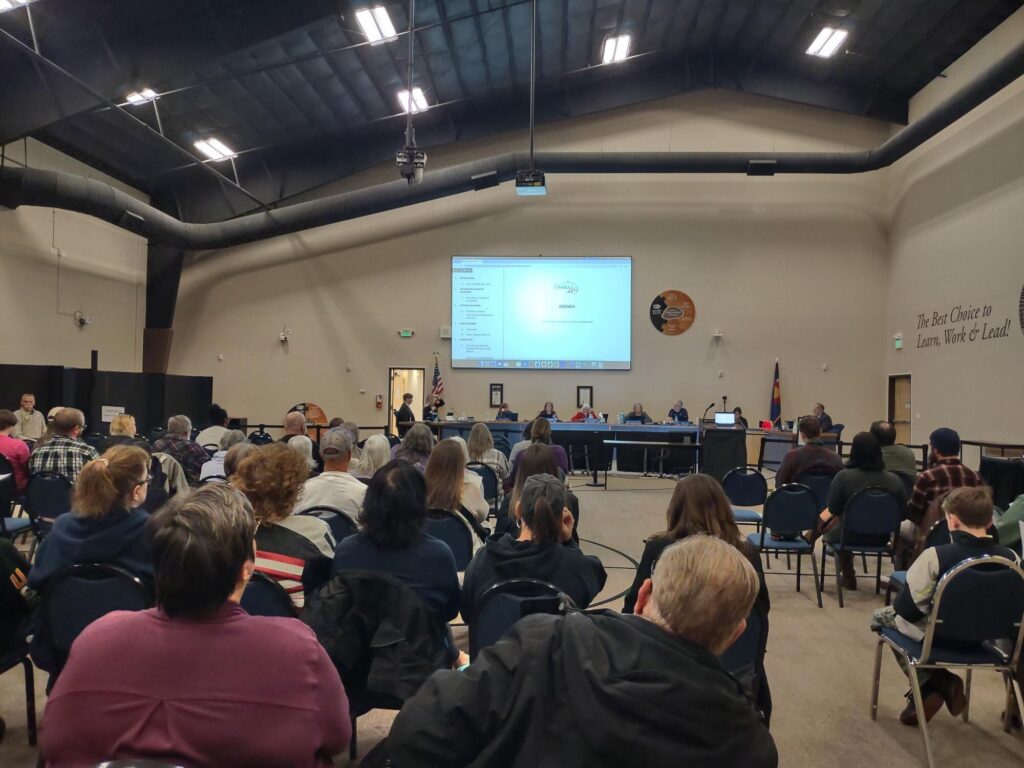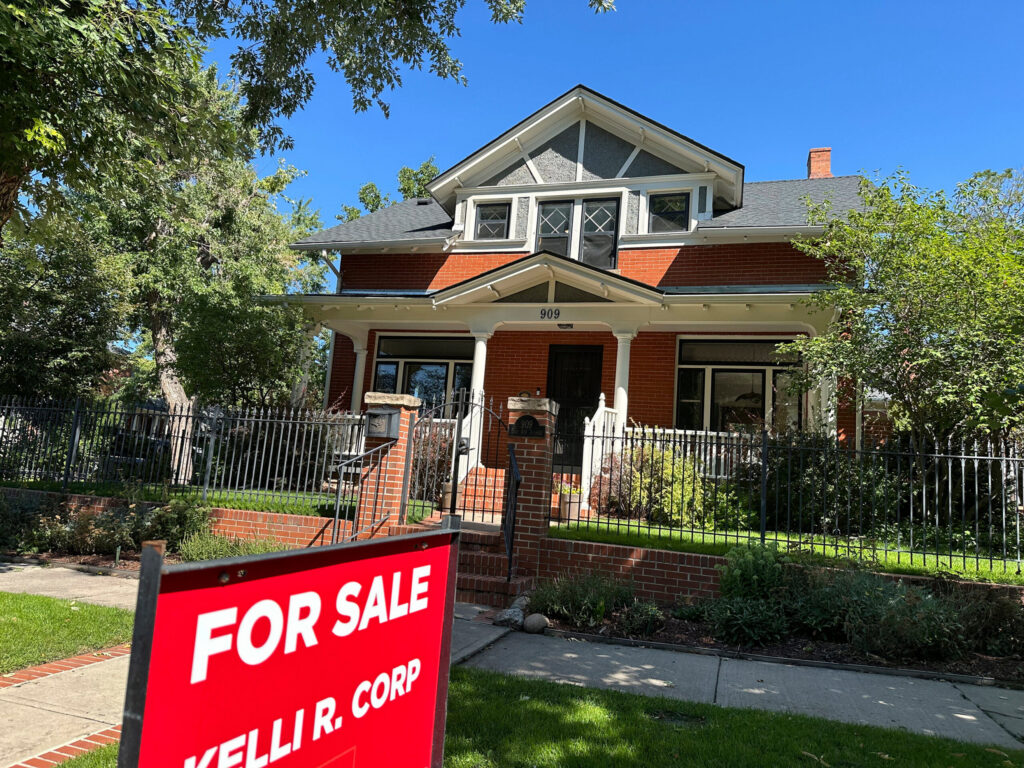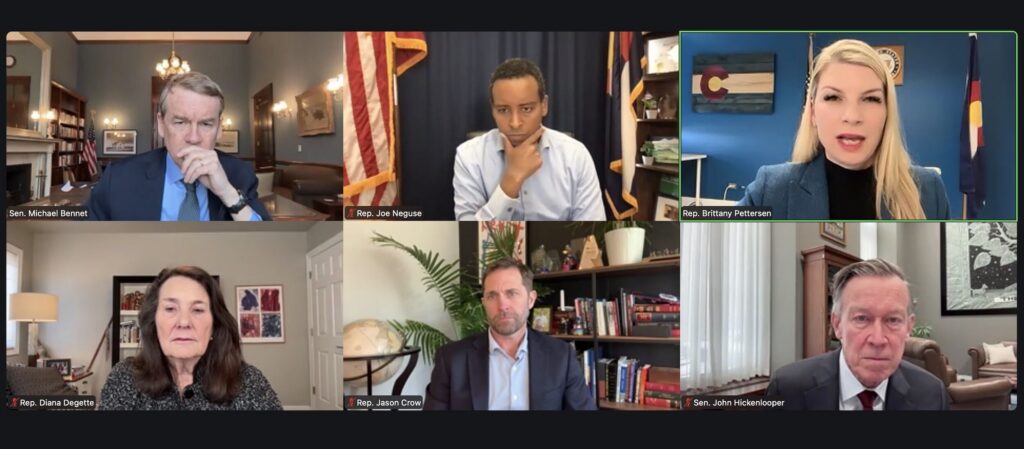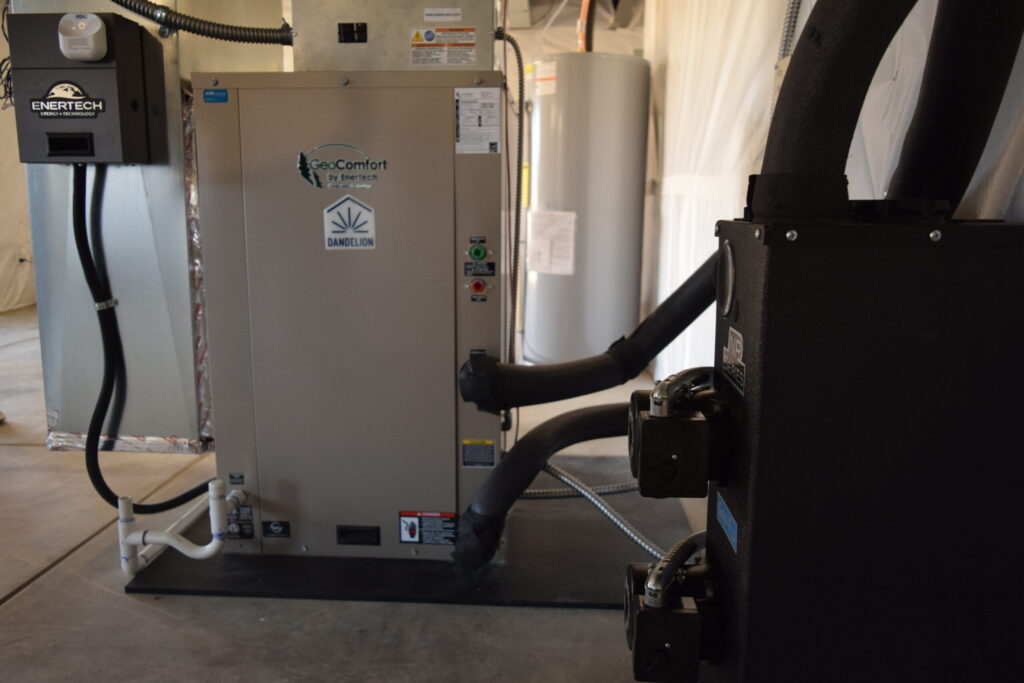Task forces issue long-awaited recommendations on $1 billion housing, behavioral health spending
The Democratic establishment quickly lined up behind recommendations to spend roughly a billion dollars in federal aid on a slew of housing and behavioral health programs, notably money for a revolving loan fund and increasing adult inpatient and residential care.
The recommendations, which two legislative task forces unveiled on Monday, will be turned into legislation that is expected to be introduced during the 2022 session. The Polis administration strongly signaled the governor would sign the package when it reaches his desk.
The Governor’s Office this afternoon sent a news release citing Democratic leaders, including U.S. Sens. Michael Bennet and John Hickenlooper, and their support for the proposed spending plan.
The task forces, charged under 2021 legislation with crafting the recommendations to spend $1.1 billion in federal aid, issued their reports Friday and Democratic lawmakers touted their proposals in a press conference this morning.
In its report, the Affordable Housing Task Force, which House Bill 21-1329 authorized, suggested investing $150 million to $227 million in a revolving loan fund; the same amount for nonprofit and local government grants; $35 million to $51 million for “resident-owned communities,” mobile home parks and land grants; $40 million to $48 million for innovative housing incentives; and, $25 million to the Colorado Housing and Finance Authority to assist middle-income borrowers with home financing.
The total for those recommendations: about $400 million. Policymakers had allocated an additional $100 million from the affordable housing cash fund during the 2021-22 budget year on emergency assistance.
American Rescue Plan Act guidelines call for the affordable housing aid to be weighted toward those who have suffered disproportionately during the pandemic, notably people of color, tribal nations, and low-income individuals. ARPA guidelines also allow for assistance to “other populations, households, or geographic areas disproportionately impacted by the pandemic.”
A separate Behavioral Health Task Force, which Senate Bill 21-137 authorized, also issued its report Friday. Their eight recommendations include:
- Addressing residential behavioral health needs of Native American Tribes – $5 million to $10 million
- Youth and family residential care, community services, and school and pediatric behavioral health care integrations – $110.5 million to $141.5 million
- Increasing adult inpatient and residential care – $65 million to $71 million
- Ensuring people aren’t arrested and jailed for behavioral health conditions – $65 million to $70 million
- Expanding and support Colorado’s behavioral health workforce – $80.3 million to $82.7 million
The total recommended by the task force is $450 million; another $114 million (including additional marijuana cash funds) were spent in 2021-22 to jump-start some of the programs identified in the 2021 legislation.
The deadline for spending that money is Dec. 31, 2024.
A mix of lawmakers and state agency experts, with a subpanel for each, comprised both task forces, which also included representatives of a variety of issues and regions of the state.
Lt. Gov. Dianne Primavera, joined by Democratic lawmakers, said at Monday’s press conference that behind the policy, politics and big numbers “are real people who need help” and need it fast. Behavioral health is a priority for herself and Gov. Jared Polis, and ARPA money will help address structural gaps in the behavioral health system.
Sen. Julie Gonzales, D-Denver, the vice chair of the affordable housing group, said she’s seen first hand the transformation that takes place when someone attains housing security. She noted that she lives in an affordable housing unit.
Her group took the “once in a generation” opportunity to speak to experts around the state, rural and suburban, on how to transform the housing crisis, she said, adding, “If you’re at risk for homelessness” help is available.
Sen. Brittany Pettersen, D-Lakewood, who chaired the behavioral health group, pointed out that, over the last decade, youth suicide has risen 51%. She said that’s unacceptable and noted that behavioral health is not paid for at the same parity as physical health.
While the proposed spending is substantial, it’s not enough, lawmakers said.
Given TABOR’s constraints on the budget, the money felt like a gift, Gonzales said.
“We recognize the pandemic laid bare structural inequities” in the system, and while $400 million is a lot of money, it’s only part of the solution, she said, adding lawmakers will be working with local governments, which received separate ARPA funding, to figure out how to best allocate those dollars.
Lawmakers intend to send out money that local governments and private housing developers can leverage to start building affordable housing, according to Rep. Dylan Roberts, D-Eagle, who chaired the affordable housing group.
“The state can’t do it alone,” he added.
Roberts said some housing projects have already broken ground, including buying land.
Recommendations from a third task force, on economic recovery, are expected later in the year, according to House Speaker Alec Garnett, D-Denver. That gives the task force for more time to look at economic relief, including allowing economists an opportunity to weigh in, he said.
Gonzales, as well as several other task force members, said the recommendations were driven by consensus and bipartisanship and adopted unanimously.
However, no Republican attended the news conference – several told Colorado Politics they were unaware it was taking place.
Democrats also told the minority party via email Republicans would not be allowed to speak, given the number of people initially scheduled to attend, which included members of Colorado’s congressional delegation. Those Congressional lawmakers bowed out at the last moment. One Democratic staffer said the minority should have asked for an opportunity to speak.
Republicans earlier asked for an opportunity to issue a minority report should they disagree with the task forces’ suggestions, but none was submitted with the final report.
Senate GOP spokesman Sage Naumann told Colorado Politics that since Republicans were invited but not allowed to speak, they did not want to be part of a photo op for two Democratic lawmakers – Roberts and Pettersen – who are on the campaign trail.
Petersen is running for the 7th Congressional District while Roberts is gunning for the state Senate.
“It’s not appropriate” for Republicans to be part of the Democrats’ election campaigns, especially since the majority assigns Republican bills, including those dealing with housing, to “kill” committees, he said.













